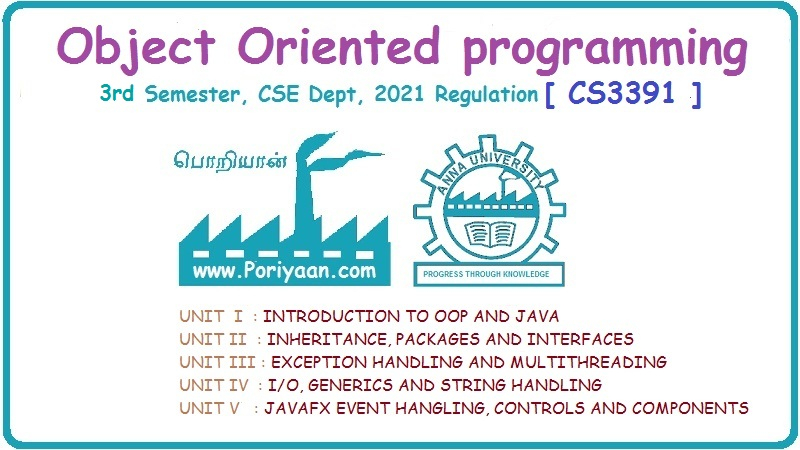Object Oriented Programming: Unit IV: I/O, Generics, String Handling
Generic Programming
Java Object Oriented Programming
Generic is a mechanism for creating a general model in which generic methods and generic classes enable programmers to specify a single method (or a set of related methods) and single class (or a set of related classes) for performing the desired task.
Generic Programming
Generic
is a mechanism for creating a general model in which generic methods and
generic classes enable programmers to specify a single method (or a set of
related methods) and single class (or a set of related classes) for performing
the desired task.
For example -
Suppose
we want to create a stack and if we create a stack of integers then it will
store only the integer elements, if we try to push any string or any double
type element then a compile time error will occur. If we want to push any
string then we need to create a separate stack, separate class and separate
methods for handling the String elements. Same is true for the elements of any
other data type. This results in complex code building. To avoid such
complexity, a concept of generic programming is introduced.
What is the need for Generic?
Following
features show the importance of generics in Java.
1. It
saves the programmers burden of creating separate methods for handling data
belonging to different data types.
2. It
allows the code reusability.
3.
Compact code can be created.
Review
Question
1.
Mention the motivations of generic programming
Object Oriented Programming: Unit IV: I/O, Generics, String Handling : Tag: : Java Object Oriented Programming - Generic Programming
Related Topics
Related Subjects
Object Oriented Programming
CS3391 3rd Semester CSE Dept | 2021 Regulation | 3rd Semester CSE Dept 2021 Regulation
